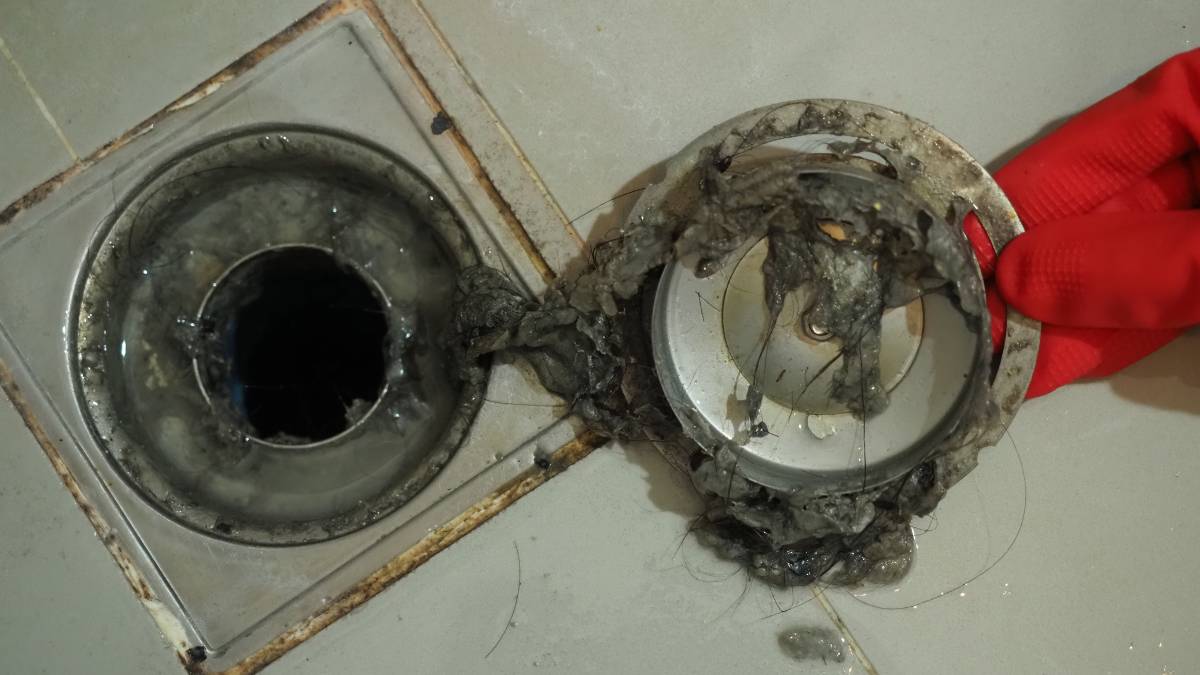Last Updated on March 12, 2024 by Kravelv Spiegel
Oh, the joys of homeownership! There’s nothing quite like the feeling of panic when you realize your sink is draining slower than a snail on a Sunday stroll. Yep, you guessed it – a clogged drain. It’s one of those little nuisances that can quickly escalate into a big, messy problem if left unchecked.
But fear not, dear reader! In this guide, we’re diving headfirst into the murky waters of clogged drains. We’ll uncover the common culprits behind these plumbing predicaments and arm you with practical tips to keep your drains flowing freely. So grab your plunger and let’s get started!
The Lowdown on Clogged Drains
Before we plunge into prevention strategies, let’s take a moment to understand what causes drains to clog in the first place. Contrary to popular belief, it’s not always about what goes down the drain but rather what shouldn’t be there in the first place.
Common Culprits:
- Hair – If you’ve ever shed a tear over a clogged shower drain, chances are hair is the culprit. Those luscious locks may look fabulous on your head, but they wreak havoc on your plumbing.
- Food Waste – Letting food scraps find their way down the kitchen sink is a recipe for disaster. Grease, oil, and starchy foods are notorious for causing blockages.
- Soap Scum – That frothy, bubbly goodness may leave you feeling squeaky clean, but it also leaves behind a nasty residue that can cling to pipes and trap other debris.
- Foreign Objects – From cotton swabs to dental floss, many unsuspecting items can find their way into drains and wreak havoc on your plumbing system.
- Mineral Buildup – Hard water can leave behind mineral deposits that accumulate over time, narrowing your pipes and impeding water flow.
Prevention is Key
Now that we’ve identified the usual suspects, it’s time to take proactive measures to prevent clogs from occurring. Here are some simple yet effective strategies to keep your drains clear as a summer sky.
Regular Maintenance:
- Install Drain Guards – These nifty little devices act as filters, catching hair and debris before they have a chance to cause a clog.
- Flush with Hot Water – Pouring hot water down your drains on a regular basis can help dissolve grease and soap scum, keeping your pipes squeaky clean.
- Use Enzyme Cleaners – Opt for enzyme-based cleaners that break down organic matter without harming your pipes. Regular use can prevent buildup and keep your drains flowing smoothly.
Mindful Habits:
- Dispose of Food Properly – Scrape food scraps into the trash or compost bin rather than rinsing them down the sink. This simple habit can prevent kitchen clogs and reduce the risk of foul odors.
- Collect Hair Before Showering – Invest in a hair catcher or mesh drain cover to trap hair before it has a chance to wreak havoc on your plumbing. Trust me, your pipes will thank you later.
- Avoid Flushing Foreign Objects – Stick to flushing toilet paper and human waste down the toilet – anything else is just asking for trouble.
DIY Solutions
Despite your best efforts, clogs can still occur from time to time. When they do, it’s essential to have a few tricks up your sleeve to tackle the problem head-on. Here are some DIY solutions to unclog stubborn drains.
- Plunge Away – For minor clogs, a good old-fashioned plunger can work wonders. Simply place the plunger over the drain, ensure a tight seal, and plunge vigorously until the clog loosens.
- Baking Soda and Vinegar – This classic DIY remedy can help break down minor clogs without resorting to harsh chemicals. Pour a cup of baking soda followed by a cup of vinegar down the drain, let it fizz for a few minutes, then flush with hot water.
- Wire Hanger Trick – Straighten out a wire coat hanger and fashion a hook at one end. Carefully insert the hanger into the drain to fish out any hair or debris lurking within.
When to Call in the Pros
While DIY solutions can work wonders for minor clogs, some situations call for professional intervention. Here are a few signs that it’s time to throw in the towel and call a plumber:
- Persistent Clogs – If you’ve tried everything and the clog persists, it’s time to call in the big guns.
- Foul Odors – A foul smell emanating from your drains could indicate a more serious underlying issue, such as a sewer line blockage.
- Multiple Clogged Fixtures – If multiple drains in your home are backing up simultaneously, it could signal a problem with your main sewer line.
Final Thoughts
Clogged drains are an inevitable part of homeownership, but they don’t have to be a recurring nightmare. By taking proactive measures to prevent clogs and knowing how to tackle them when they occur, you can keep your plumbing system running smoothly for years to come. So remember, when life gives you clogged drains, grab a plunger and tackle the problem head-on – your pipes will thank you for it!

